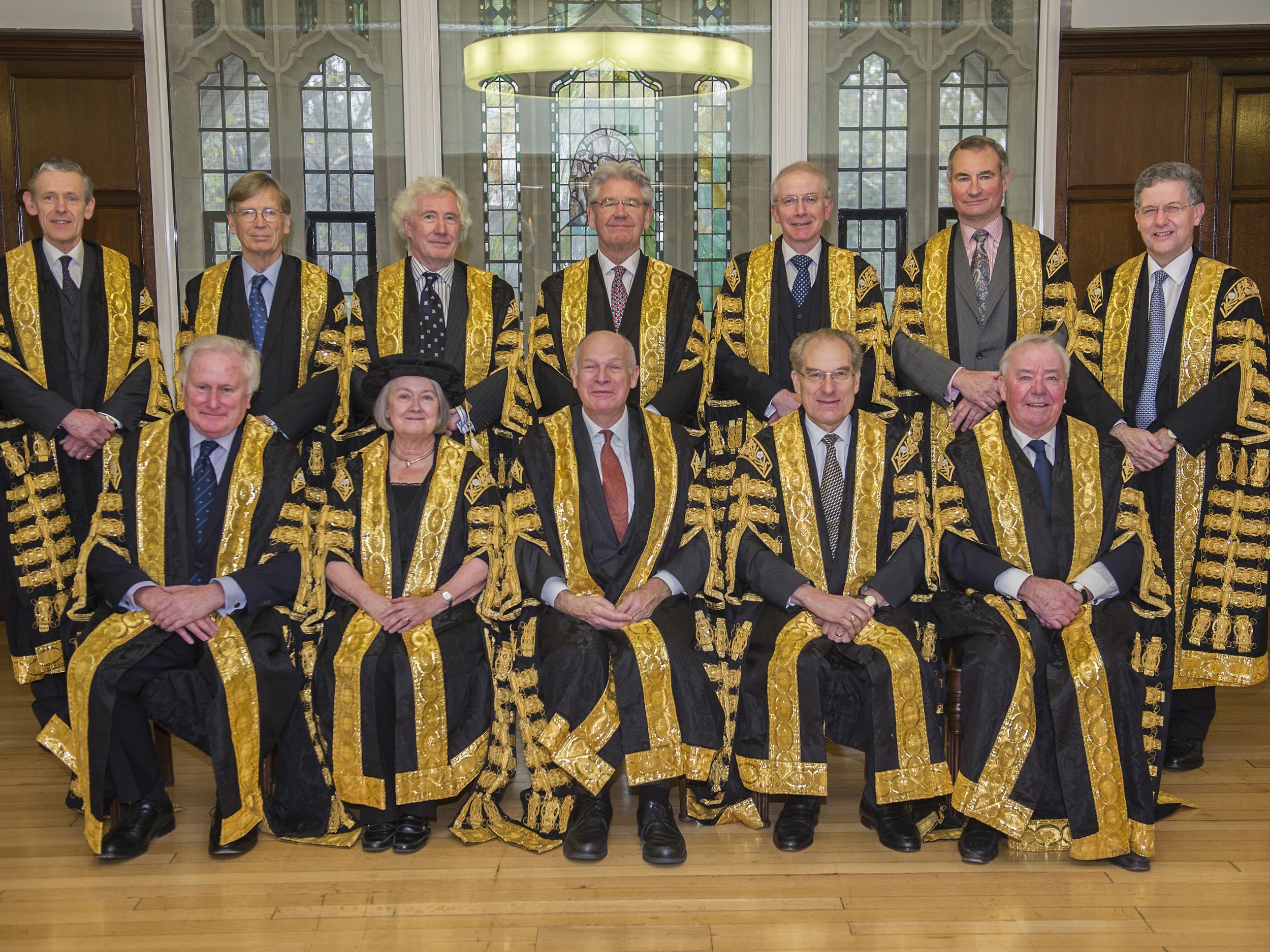Ironically, Supreme Court judges and EU legislation were the things that allowed Theresa May a legal victory today
This week, Supreme Court judges were the heroes of right-wingers everywhere when they ruled that a financial barrier preventing UK citizens from bringing their foreign spouses to Britain is lawful. A couple of months ago, they 'frustrated democracy' by, well, insisting on a properly democratic process for the terms of Brexit


This week is a good time to remember that Nigel Farage once tried to get a “100,000-strong people’s army” to march on the Supreme Court. Granted, only a handful of dedicated Brexiteers actually turned up, but that’s not really the point. Back in December, pictures of greying Ukippers shaking their fists outside the highest court in the land started decorating the pages of most newspapers. One widely shared image showed a man holding up a placard which read: “Unbiased judges? This is an establishment stitch-up” (we’ll leave aside the fact that the most establishment party there is, the Conservatives, is currently ploughing ahead with the hardest of Brexits imaginable.)
So when is the law the law and when is it an establishment stitch-up? When are judges in the Supreme Court “enemies of the people” and when are they “protectors of Britain”? This week, they were the heroes of right-wingers everywhere when they ruled that a financial barrier preventing UK citizens from bringing their foreign spouses to Britain is lawful. A couple of months ago, they “frustrated democracy” by, well, insisting on a properly democratic process for the terms of Brexit. What a confused bunch. It’s almost as though Supreme Court judges don’t actually have a secret political agenda that they’re trying to impose on the country.
Whither the criticism from Brexiteers now? Where are the front-page headlines in right-leaning tabloids calling Supreme Court justice Lady Hale (the lead justice today on the immigration case) an embittered “notably female enemy of global financial progress”, in the style of the Daily Mail’s savaging of an “openly gay” Supreme Court “enemy of the people” who voted in favour of giving Parliament a vote on Brexit? Why isn’t Farage’s interest piqued by another high profile case going through the Supreme Court, which we all thought he’d long decided wasn’t fit to practice?
Just to be clear, I’m not advocating any sort of an uprising. The law is the law is the law, and the thing with justice is it’s supposed to be blind. Judges interpret the existent laws of Britain impartially on a case-by-case basis, and we have to trust them to do that job otherwise our democratic state fails entirely. That means accepting that a bar on immigration is legal when they say it’s legal, and that Parliament should be able to debate the terms of Brexit when they say it should. Everything else really is an attack on British democracy – and it’s galling that people have begun to pick and choose when they see it that way.
There is one further irony in all of this: the judgement that went through this week upholding a bar on immigration did so because those awful unelected “enemy of the state” judges interpreted the European Convention on Human Rights, a cornerstone of EU law. So the EU’s own dreary bureaucracy is responsible for allowing Britain to set that particular limit on immigration, forcing British spouses to have a salary above £18,600 if they want to bring their foreign husband or wife over to live with them in the UK. To be crystal clear: it was European legislation that meant the British immigration bar was ultimately upheld.
Meanwhile, Theresa May, in her former incarnation as Home Secretary, was the one who introduced that £18,600 bar in the first place – and it was her victory in court today, not long after her Government’s defeat over Brexit in the same place, under the same expert legal team.
If that’s not evidence of impartiality, I don’t know what is.
Join our commenting forum
Join thought-provoking conversations, follow other Independent readers and see their replies
Comments
Bookmark popover
Removed from bookmarks